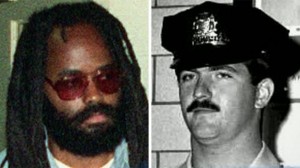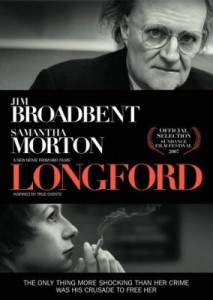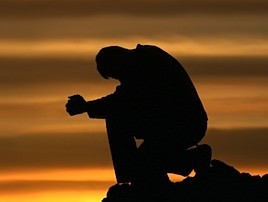I was both surprised and disappointed to hear that Goddard college had chosen Mumia Abu-Jamal as their commencement speaker. While I have no doubt that these students and the faculty are well intentioned, they are extremely misguided.
Mumia Abu-Jamal—formerly known as Wesley Cook—is a convicted cop killer who’s been incarcerated for 30 years. Once sentenced to death, he is now serving Life without parole. Prior to the murder, he was involved with the radical and violent Black Panther party.
Why would such an individual be deemed a role model that could inspire and encourage graduates? Quite frankly, I have no idea! According to a spokesman I saw on TV, it’s to bring attention to “race relations and judicial injustice.”
Do we have problems in America with race? Absolutely. Is our legal system completely fair and equal for all? Not even close. That doesn’t mean, however, that murderers should be lionized. Despite what Abu-Jamal and his supporters believe, he is not a political prisoner. He is a murderer of an innocent man who did nothing more than make a routine traffic stop.
Certain individuals, who do not even know the facts of the case, have rallied to this cause. Throughout history, many infamous prisoners have worked both sympathy and the system to their advantage. I am reminded of what happened to Lord Longford in his association with the notoriously evil British child killer, Myra Hindley. (Those events were documented in an excellent film.)
Like the supporters of Abu-Jamal, Lord Longford staked his name and reputation on helping someone he thought had suffered “judicial injustice.” Sadly, he was lied to, used, and betrayed by Hindley, with devastating personal consequences.
I am not against helping prisoners—far from it! (The Torah is very clear in that regard.) I grew up in a family filled with defense lawyers and I truly believe everyone deserves their say in Court. I believe in mercy, redemption, and fair punishments. What I don’t like is when innocents have their trust shattered by con artists who truly care for none but themselves.
So, how does any of this relate to Yom Kippur? Since we just celebrated the holiday, its tenets are on my mind. Yom Kippur is a day in which we are reminded of the vital concepts of humility, healing, prayer, introspection, and atonement.
During his commencement speech, did Abu-Jamal apologize to Maureen Falkner (the victim’s wife)? Did he ask for forgiveness? Does he show repentance by continuing to deny his crime and seek publicity from it by writing books and making speeches?
If Goddard college wants to teach its students to be mindful of injustice, why didn’t they ask the widow to speak? She has courageously detailed all of the hardships she and her children have endured over the years in a compelling book. Shouldn’t our sympathies be with them? (I know mine are.)
Everyone makes mistakes; we are all sinners. God knows that and He loves us anyway. If an individual is truly repentant, they can be forgiven. 4 days ago, on Yom Kippur, we asked for forgiveness. We promised not to repeat our crimes, be they minor or major. We humbled ourselves before God and our community and admitted we are not perfect.
Until Mumia Abu-Jamal can do the same, he should not be asking for pity…



